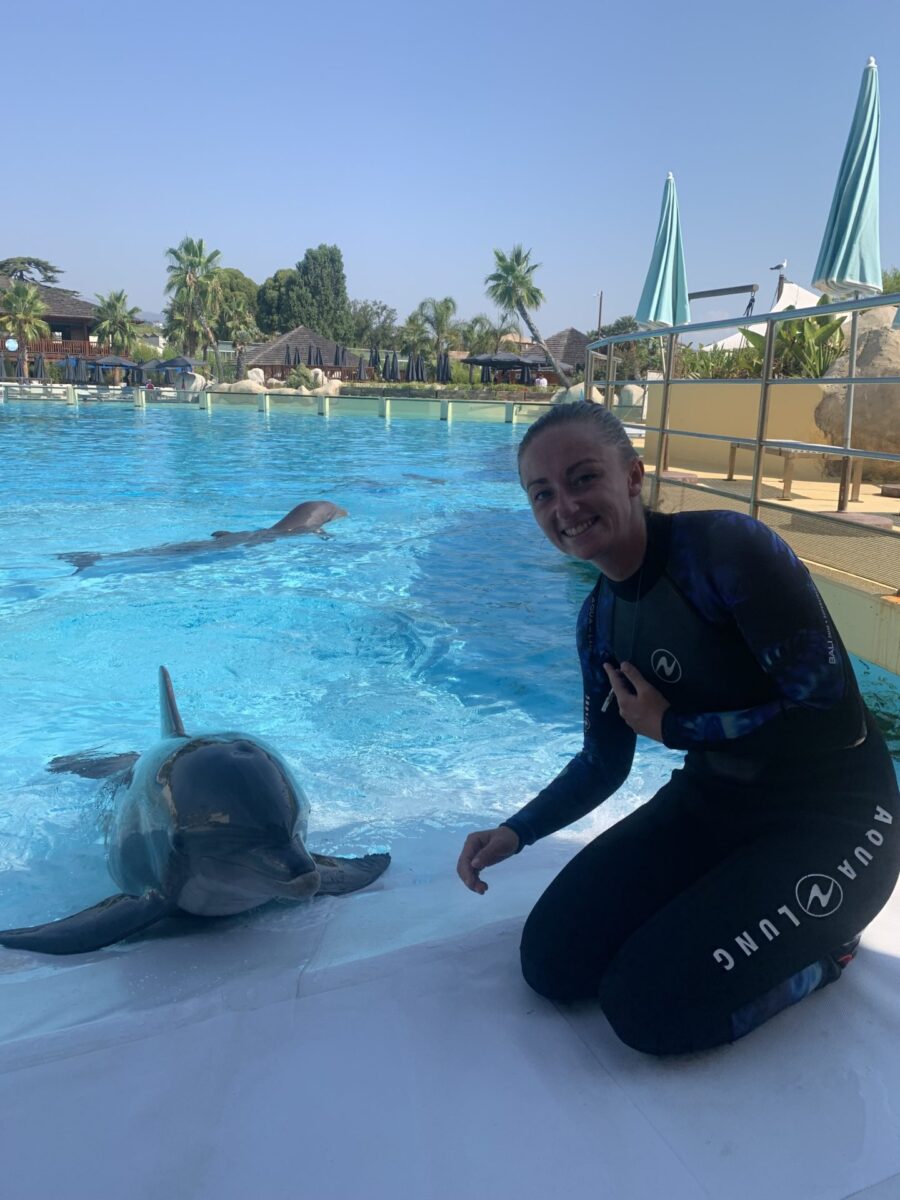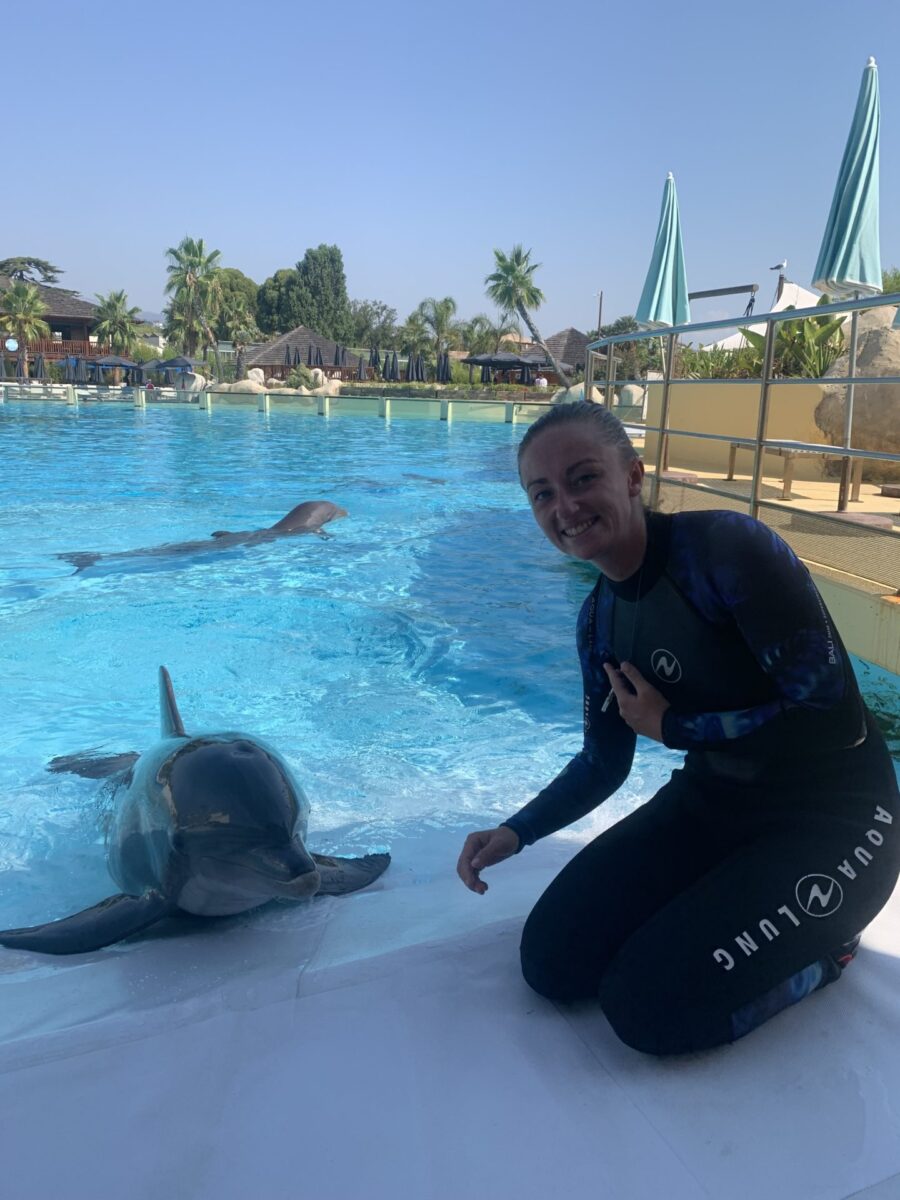Nice Premium met with a caretaker from the famous azure marine park. For you, we interviewed her about her career and daily life.
How did you develop the desire to do this job?
I had this idea when I was very, very young; taking care of animals has always been a goal for me!
What studies did you complete?
I completed a general baccalaureate and then entered a caretaker school. To gain theoretical knowledge but also to learn directly in the field.
How are these training programs conducted?
The theoretical part at school is very interesting, but it’s mainly the practical aspect that counts. It can be done through a long internship or an apprenticeship. Personally, I chose the apprenticeship, which I completed with the animals at Kid’s Island, where I was on a three-week-in-company schedule per month. It was at this point that I truly realized what this job entailed.
Do you have a particular work routine?
Every day is different; you can’t have a routine with these animals. In the morning, we plan an idea of what we’d like to do, but it’s always the animals that decide how the day will unfold. Based on what they show us, we adapt to them. We can’t have a routine that is always the same; they are animals, so like us, each day is different.

What actions do you perform daily in your job?
When arriving at a pool, the first step is observation to identify the individuals but also to learn the gestures to have with them. Each gesture means something to the animal, which will respond in turn. Generally, it works, but sometimes it’s not exactly what we expected. The important thing is that we know the gestures to be clear with them.
Is there also a psychological aspect to this work?
Indeed, it’s very important to know the biology of the species you are working with. The better you know a species, the better you can take care of it and check all the boxes for its well-being. And again, they are animals, not machines. With each little detail, we try to “understand” their psychology, even though we remain humans and they are dolphins. We can’t afford to anthropomorphize and say we think like them, but we analyze their reactions.
How would you describe the nature of a dolphin?
A dolphin has an immense likeability factor because it has a certain curiosity. It is a social animal with its peers, and ours are accustomed to human contact, so they regularly come to see us. The nature depends on each individual, who truly has its own personality, which is unique to each animal.


